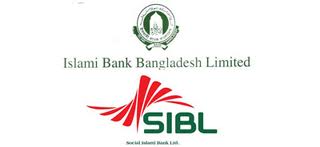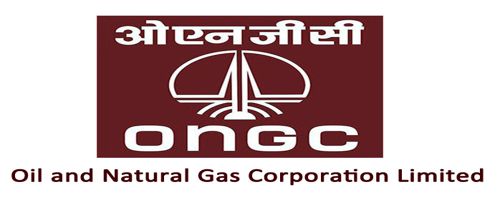FOREIGN EXCHANG AND FOREIGN REMITTENCE OF SIBL
FOREIGN EXCHANGE DIVISION
Foreign exchange is the means and methods by which rights to wealth in a country’s currency are converted into rights to wealth in another country’s currency. In banks when we talk of foreign exchange, we refer to the general mechanism by which a bank converts currency of one country into that of another. Foreign Exchange Department (FED) is the international department Bangladesh Bank issues license to scheduled banks to deal with foreign exchange. These banks are known as Authorized Dealers. If the branch is authorized dealer in foreign exchange market, it can remit foreign exchange from local country to foreign countries. So Social Islami Bank, Principal branch is an authorized dealer.
There are three kinds of foreign exchange transaction:
- Import
- Export
- Remittance.
IMPORT
To import, a person should be competent to be and importer. According to Import and Export Control Act, 1950, the Office of Chief Controller of Import and Export provides the registration (IRC) to the importer. In an international business environment, buyers and sellers are generally unknown to each other. So seller of goods always seeks security for the payment of his exported goods. Bank gives export guarantee that it will pay for the goods on behalf of the buyer if the buyer does not pay. This guarantee is called Letter of Credit. Thus the contract between importer and exporter is given a legal shape by the banker by ‘Letter of Credit’.
Letter of Credit
A letter of credit is a letter issued by a bank (know as the opening or the issuing bank) at the instance of its customer (known as the opener) addressed to a person (beneficiary) undertaking that the bills drawn by the beneficiary will be duly honored by it (opening
Bank) provided certain conditions mentioned in the letter gave been complied with.
Steps for import L/C Operation
Operation
Step 1 – Registration with CCI&E
• For engaging in international trade, even trader must be first registered with the Chief Controller of Import and Export.
• By paying specified registration fees to the CCI&E- the trader will get IRC/ERC (Import/Export Registration Certificate), to open L/C with bank, this IRC is must.
Step 2 – Determination terms of credit
• The terms of the letter of credit are depending upon the contract between the importer and exporter. The terms of the credit specify the amount of credit, name and address of the beneficiary and opener, tenor of the bill of exchange-period and mode of shipment and of destination, nature of credit, expiry date name and number of sets of shipping documents etc.
Step 3 – Proposal for Opening of L/C
To have an import LC limit an importer submits an application to department to Social Islami Bank. The proposal contains the following particulars:
• Full particulars of the bank account
• Nature of business
• Required amount of limit
• Payment terms and conditions
• Goods to be imported
• Offered security
• Repayment schedule
Step 4 – Application by importer to the banker to open letter of credit
• For opening L/C, the importer is required to fill up a prescribed application form provided by the banker along with the following documents:
| 1. L/C Application form | 7. Authority to debit account |
| 2. Filled up LCA form | 8. Filled up amendment request Form |
| 3. Demand Promissory Note | 9. IMP form |
| 4. pro-forma invoice | 10. Insurance cover note and money receipt |
| 5. Tax Identification number | 11. Membership certificate |
| 6. Import registration certificate | 12. Rate fluctuation undertaking |
Step 5 – Opening of L/C by the bank for the opener:
• Taking filled up application form from the importer.
• Collects credit report of exporter from exporter’s country through his foreign correspondence there.
• Opening bank then issues credit by air mail/TELEX/SWIFT followed by L/C advice as asked by the opener through his foreign correspondent or branch as the case may be, at the place of beneficiary. The advising bank advises the L/C to the beneficiary on his own form where it is addressed to him or merely hand over the original L/C to the beneficiary if it is so addressed.
Step 6 – Shipment of goods and lodgment of documents by exporter:
Then exporter ships the goods to the destination of the importer country.
Sends the documents to the L/C opening bank through his negotiating bank. Generally the following documents are sent to the Opening Banker with L/C
| 1. Bill of Exchange | 6. Packing List |
| 2. Bill of Lading | 7. Advice Details of Shipment |
| 3. Commercial Invoice
| 8. Pre-shipment Inspection Certificate |
| 4. Certificate of Origin | 9. Vessel Particular |
| 5. A certificate stating that each packet contains the description of goods over the packet. | 10.Shipment Certificate
|
Step 7 – Lodgment of Documents by the opening Bank from the negotiating bank:
After receiving the documents, the opening banker scrutinizes the documents. If any discrepancy found, it informs the importer. If importer accepts the fault, then opening bankers call importer retiring the document. At this time many thing can happen. These are indicated in the following:
• Discrepancy found but the importer accepts – No problem occurs in lodgment.
• Discrepancy found and importer not agreed to accept – In this case, importer protest and send back all the documents to the exporter and request his to make in the specified manner. Here banker is not bound to pay because the documents send by exporter is not in accordance with the terms of L/C.
• Documents are OK but importer is willing to retire the documents – In this case bank is obligated to pay the price of exported goods. Since importer did not pay for bill of exchange, this payment by bank is one kind of credit to the importer and this credit in banking is known as PAD.
• Everything is O.K. but importer fails to clear goods from the port and request bank to clear- In this case banks clear the goods and takes delivery of the same by paying customs duty and sales tax etc. So, this expenditure is debited to the importer’s account and in banking it is called LIM.
Step 8 – Retirement
The importer receives the intimation and gives necessary instruction to the bank for retirement of the import bills or for the disposal of the shipping document to clear the imported goods from the customs authority. The importer may instruct the bank to retire the documents by debiting his account with the bank or may ask for LTR (Loan against Trust Receipt).
Accounting Procedure in case of L/C Opening
When the officer thinks fit the application to open a L/C, giving the following entries-creates the following charges-
Particulars | Debit/Credit | Charges in Taka |
Customer’s A/C | Debit | |
L/C Margin A/C | Credit | |
Commission A/C on L/C | Credit | 50% |
VAT | Credit | 15% on commission |
SWIFT Charge | Credit | 3000/= |
Datamax | Credit | 1000/= |
Stamp | Credit | 150/= |
Postage | Credit | 300/= |
DHL/Courier | Credit | 1500/= |
Amendment of L/C:
After opening of L/C some time’s alteration to the original terms and conditions become necessary. These amendments involve changes in:
a. Unit price
b. Extension of validity o the L/C
c. Documentary requirements etc.
Such amendments can be affected only if all the concerned parties agree i.e. the beneficiary, the importer, the issuing bank and the advising bank.
For any amendment the importer must request the issuing bank in writing duly supported by revised indent invoice. The issuing bank then advises the required amendment to the advising bank. L/C amendment commission including postage is charged to the clients A/C.
Loan against Trust Receipts (LTR)
* Advance against a Trust Receipt obtained from the Customers are allowed to only first class tested parties when the documents covering an import shipment or other goods pledged to the Bank as security are given
Without payment. However, for such advances prior permission/sanction from Head Office must be obtained.
* The customer holds the goods or their sale-proceeds in trust for the Bank, till such time, the loan allowed against the Trust Receipts is fully paid off.
* The Trust Receipt is a document that creates the Banker’s Hen on the goods and practically amounts to hypothecation of the proceeds of sale in discharge of the lien.
Loan Against Imported Merchandise (LIM)
Advance (Loan) against the security of merchandise imported through the Bank may be allowed either on pledge or hypothecation, of goods, retaining margin prescribed or their Landed Cost, depending on their categories and Credit Restriction imposed by the Bangladesh Bank. Bank shall also obtain a letter of undertaking and indemnity from the parties, before getting the goods cleared through LIM Account.
EXPORT
Understanding
The goods and services sold by Bangladesh to foreign households, businessmen and Government are called export. The export trade of the country is regulated by the Imports and Exports (control) Act, 1950. There are a number of formalities, which an exporter has to fulfill before and after shipment of goods. The exports from Bangladesh are subject to export trade control exercised by the Ministry Of Commerce through Chief Controller of Imports and Exports (CC & E). No exporter is allowed to export any commodity permissible for export from Bangladesh unless he is registered with CC! & E and holds valid Export Registration Certificate (ERC). The ERC is required to be renewed ever}year. The ERC number is to be incorporated on EXP forms and other documents connected with exports. The formalities and procedure are enumerated as follows:
1. Obtaining exports LC: To get export LC form exporter issued by the importer.
2. Submission of export documents: Exporter has to submit all necessary documents to the collecting bank after shipping of goods
3. Checking of export documents: After getting the documents banker used to check the documents as per LC terms
4. Negotiation of export documents: If the bank accepts the document and pays the value draft to the exporter and forward the document to issuing bank that is called a negotiating bank. If the bank does buy the LC then the bank normally acts as collecting bank
5. Realization of proceeds: This is the period when the issuing bank has realized the payment.
6. Reporting to the Bangladesh bank: As per instruction by Bangladesh bank the bank has to report to respective department of Bangladesh bank by mentioning latest payment.
7. Issue to proceeds realization certificate (PRC): Bank has to issue proceeds realization certificate of export LC to the supplier / exporter for getting cash assistance
Back-To-Back L/C
It is simply issued to the clients against an import L/C. Back-to-Back mechanism involves two separate L/C. One is master Export L/C and another is Back-to-Back L/C. On the strength of Master Export L/C bank issues bank to Back L/C. Back-to-Back L/C is commonly known as Buying L/C. On the contrary, Master Export L/C is known as Selling L/C.
L/C under EOF:
• Exporter development Fund is created by Bangladesh Bank to give encourages to the exporter in Bangladesh.
• Generally Back-to-Back L/C is Usance L/C that is here bill of exchange is payable after some maturity date say 90 or 120 days after the date of acceptance/negotiation. But some foreign seller may require sight payment. Here import L/C matures first. In that case Bangladesh Bank gives the fund to the bank to pay the price of imported goods in favor of the local purchaser of raw materials. When export proceeds come, first Bangladesh Bank loan to the importer is adjusted and remaining part goes to the importer of raw materials.
Negotiation of Export Documents:
The most common method of financing exporters is negotiation of documents under L/C. It is a post-shipment credit. Here the bank acts as a negotiating bank. After the shipment of the goods, the exporter submits the relative documents to the branch for negotiation. The documents are to submit within the period mentioned in the L/C. after approval of negotiation of the bill the full particulars of the documents are branch with a forwarding letter. The branch claim reimbursement from the issuing bank or from the reimbursing bank, giving clear instructions to credit the proceeds of the bill to the AL-ARAFAH-ISLAMI Bank head office NOSTRO A/C maintained with the named correspondent bank abroad under telex intimation to the Principal branch and Head Office (International Division).
Negotiation stands for payment of value to the exporter against “the documents stipulated in the LAC. If documents are in order, SOCIAL ISLAMI Bank purchases (negotiates) the same on the basis of banker- customer relationship. This is known as Foreign Documentary Bill Purchase (FDBP).
If the bank is not satisfied with the documents submitted to SOCIAL ISLAMI ISLAMI Bank gives the exporter reasonable time to remove the discrepancies or sends the documents to L/C opening bank for collection. This is known as Foreign Documentary Bill for Collection (FDBC) entered into the foreign, bill Purchased (F.B.P) register. The documents are sent to the L/C opening
Presentation of export documents for negotiation/ Purchase:
After shipment exporter submits the following documents to SOCIAL ISLAMI Bank for negotiation.
• Bill of exchange
• Bill of Lading
• Invoice
• Insurance Policy/Certificate
• Certificate of Origin
• Inspection Certificate
• Consular Invoice
• Packing List
• Quality Control Certificate
• G.S.P. certificate.
Foreign documentary bills for collection (FPBC):
SOCIAL ISLAMI BANK forwards the documents for collection due to the following reasons,
* If the documents have discrepancies.
* If the exporter is a new client.
FDBC signifies that the exporter will receive payment only when the issuing bank gives payment SOCIAL ISLAMI Bank make regular follow-up with the L/C opening Bank in case of any delay in getting payment.
Settlement of Local Bills:
1. The settlement of local bills is done in the following ways. –
2. The customer submits the L/C to SOCIAL ISLAMI Bank along with the documents to negotiate
3. SOCIAL ISLAMI Bank official scrutinizes the documents to ensure the conformity \\ith the terms and conditions.
4. The documents are then forwarded to the L/C opening bank.
5. The L/C issuing bank gives the acceptance and forwards an acceptance letter.
6. Payment is given to the customer on either by collection basis or by purchasing the document.
FOREIGN REMITTANCE
This bank is authorized dealer to deal in foreign exchange business. As an authorized dealer, a bank must provide some services to the clients regarding foreign exchange and this department provides these services.
The basic function of this department are outward and inward remittance of foreign exchange from one country to another country. In the process of providing this remittance service, it sells and buys foreign currency. The conversion of one currency into another takes place an agreed rate of exchange, which the banker quotes, one for buying and another for selling. In such transactions the foreign currencies are like am other commodities offered for sales and purchase, the cost (convention value) being paid by the buyer in home currency, the legal tender.
Remittance procedures of foreign currency
There are two types of remittance:
1. Inward remittance
2. Outward remittance.
Working of this department
1. Issuance of TC, Cash Dollar /Pound
2. Issuance of FDD, FTT & purchasing, Payment of the same.
3. Passport endorsement.
4. Encashment certificate-
5. F/C Account opening &filing.
6. Opening of Export FC retention Quota A/C& maintain.
7. Maintenance of ledger of Cash Dollar, FC Deposit A/C & TC.
8. Maintain FBC register &follow up FBC.
9. Opening of Student file &Maintain.
10. Preparation of all related statement, Voucher & posting.
11. Preparation of Weekly, Monthly. Yearly Statement for Bangladesh Bank return timely.
12. Attending all related correspondence to other Bank or Institutions.
Miscellaneous Services by This Department
• File: Students who are desirous to study abroad can open file in the Bank. By opening this file, bank assures the remittance of funds in abroad for study.
• F.C Accounts: Foreign Currency Accounts opened in the names of Bangladeshi nationals or persons of Bangladeshi origin working or self -employed abroad can now are maintained as long as the account holders desires.
• RFCD: Student Stands for Resident Foreign Currency Accounts. Persons” ordinary resident in Bangladesh may maintain foreign currency accounts with foreign exchange brought in at abroad. Balance of such accounts is freely remittable abroad.
Formalities for opening foreign currency (FC) Account:
The AD may without prior approval of the Bangladesh Bank open Foreign Currency (FC) account in the name of:
1. Bangladesh national residing abroad.
2. Foreign nationals residing abroad/ in Bangladesh and also foreign firms
3. Registered abroad and operating in Bangladesh and abstract foreign missions and their expatriate employees.
4. Resident of Bangladesh nationals working with the foreign / international organization operating in Bangladesh provided their salary in paid in foreign currency.
FINDINGS AND ANALYSIS
1 SIBL profit earning capacity is not satisfactory.
2 Its marketing strategy is not well designed.
3 Existing Human Resources are not sufficient for SIBL. They have to recruit more skilled employees.
4 Number of Branches are not satisfactory, SIBL have to give more emphasize on increasing number of Branches.
5 Recruitment and selection process is a time consuming and lengthy process and irregular.
6 The whole activities of SIBL is not computerized, still there exist manual record keeping system.
7 Sometimes Islami Shariah are not properly followed.
8 Job security is lower in SIBL.
9 Insufficient training program for the employees.
10 Slower in modernization comparing with its competitors.
11 The working environment in any branch is not congenial & appropriate. The working desk provides sound pollution. It looks like a hall room.
12 The modern technology is not used in the recruitment and selection process. The backdated methods are using for selection till today.
13 Salary structure of SIBL is satisfactory comparing with other Islamic Banks, the pension policy and the payment of pension to the employees are very fair and transparent.
14 The transfer and promotion process is fair but the promotion is not faster.
15 Loan facilities are very attractive to the employees of SIBL.
16 Most of the policies are backdated. Only the authority amends the policy but preserve the old policy.
17 There is no policy to build up harmonious relationship among the employees. The employees cannot protest the injustice of the authority because the pure trade union is absent there.
18 The record keeping system is also backdated, not followed computerized system properly
19 Security system of many branches is not sufficient.
RECOMMENDATION
- SIBL should concentrate in increasing its profit earning capacity.
- It should develop effective marketing strategy to attract new customers.
- Raising the capital, statutory reserve and increase the investment.
- The number of branches should be increased
- Expand and diversify customer base.
- Upgrade Online Banking.
- Recruit more skilled employees regularly.
- Bank should introduce independent ‘Marketing Department’
- Personal relationship should be build with the customers.
- Customers are the heart of the organization. They should provide more space in the office and if possible they should have some entertainment facility.
- The employee of the branch should be trained continuously.
- Few branches are not under online banking system, so all the branches should confirm on line banking system.
- More meetings, seminars, symposiums and get-together should be organized by the Branches to develop the awareness among the clients of the Bank about Islamic Banking and its advantages.
- Ensure stable dividend.
- Ensure high level customer service.
- The Bank should follow Islami Sharia strictly in every of its operation.
- Bank should introduce ATM system.
- Should introduce one-stop service centre.
- Bank should keep their annual report, brochure, bulletin etc. available to provide their customer.
- Bank should introduce consumer credit scheme.
CONCLUSIONS
Today the banking service is very competitive. From the practical materialization of customer dealing procedure during the whole period of my practical orientation in Social Islami Bank limited I have reached a firm and concrete conclusion in a very confident way. I believe that my realization will be in harmony with most of the banking thinkers. It is quite evident that to build up an effective and efficient banking system to the highest desire level, computerized transaction is must.
Social Islami Bank Ltd. is a new generation Bank. It is committed to provide high quality financial services/products to contribute to the growth of G.D.P of the country through stimulating trade and commerce, accelerating the pace of industrialization, boosting up export, creating employment opportunity for the educated youth, poverty alleviation, raising standard of living of limited income group and overall sustainable socio-economic development of the country. The is not so far when it will be in a position to overcome the existing constraints and it may be expected that by establishing a network over the country and by increasing resources this bank will be able to play a considerable role in the portfolio of development of financing.
Success in the banking business largely depends on effective lending. Less the amount of loan losses, the more the income will be from credit operations. The more the income from credit operations the more will be the profit of the Social Islami Bank Ltd. and here lays the success of credit financing.
It can be argued that though the results achieved so far are not satisfactory, credit financing is a modern scientific technique for enhancing Social Islami Bank’s strength and there lies the opportunities to make it more effective in the future for our own benefit.
From the learning and experience point of view I can say that I really enjoyed my internship at Social IslamiBank Ltd. from the very first day. I am confident that this 03 (Three) months internship program at Social Islami Bank Ltd. will definitely help me to realize my further carrier in the job market.
BIBLIOGRAPHY
1. Annual Report of Social Islami Bank Limited (2010)
2. Several Booklets from Social Islami Bank Ltd.
3. Several Newsletter s from Social Islami Bank Ltd.
4. Social \ Islami Bank web site, www.al-arafahbank.com
5. Credit Operational Manual of Social Islami Bank Limited.
6. ‘SHARIAH MANUEL’ published by Social Islami Bank Limited.
















